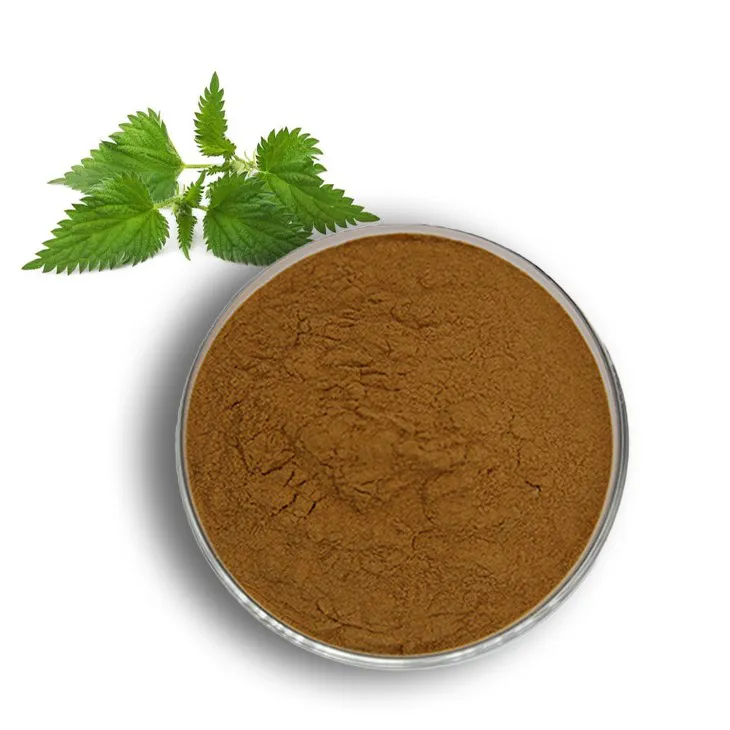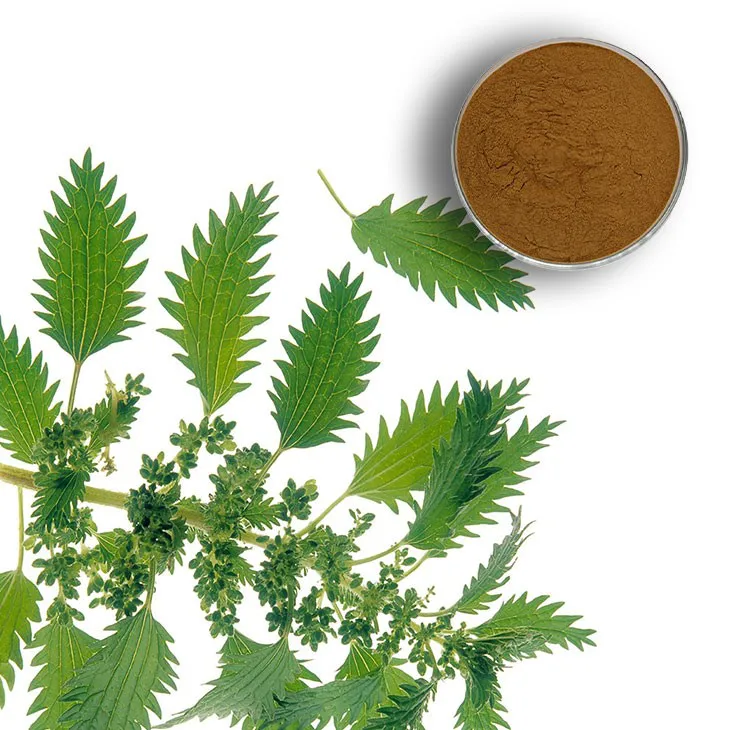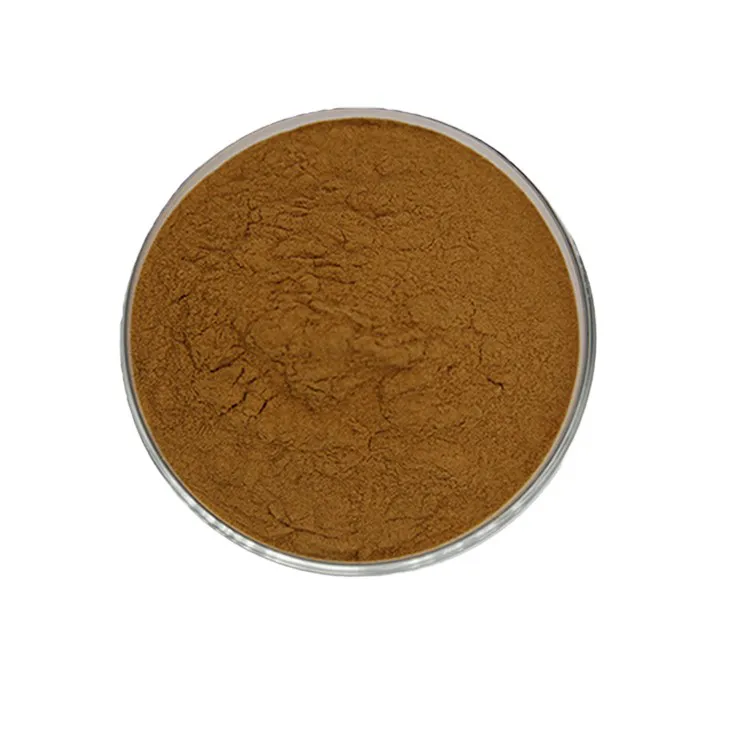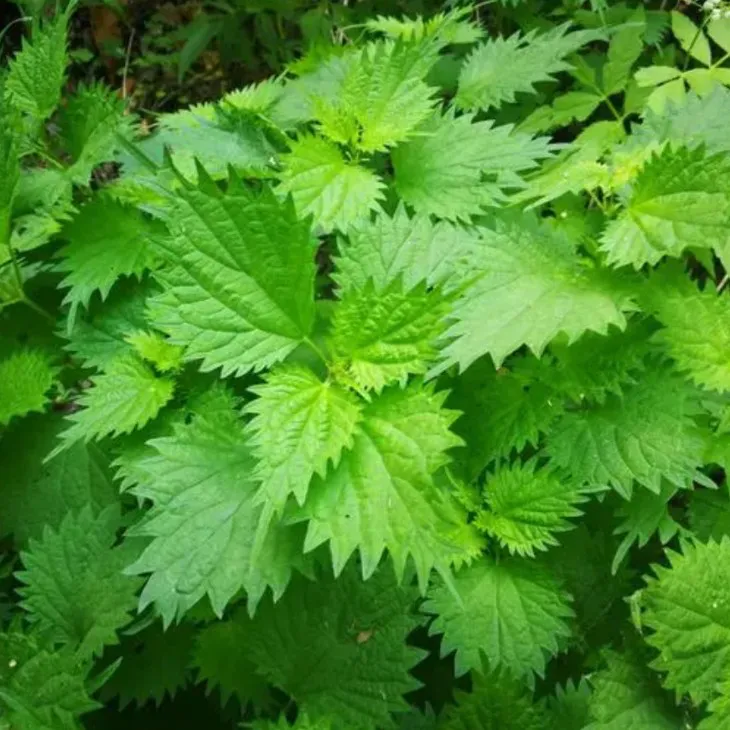- 0086-571-85302990
- sales@greenskybio.com
Use nettle root extract? Make sure you source from sustainable suppliers!
2024-12-22

1. Introduction
Nettle Root Extract has been gaining significant popularity in recent years across a variety of sectors. It is used in the pharmaceutical industry for its potential medicinal properties, in the cosmetics field for skin and hair care products, and in the dietary supplement market. However, as the demand for Nettle Root Extract rises, it is of utmost importance to ensure that it is sourced from sustainable suppliers. This article will explore the multiple reasons behind this necessity.

2. The Importance of Sustainability in Nettle Root Extraction: Environmental Impacts
2.1. Conservation of Natural Habitats
Nettle plants grow in natural habitats such as forests, meadows, and along riverbanks. Unsustainable harvesting of nettle roots can lead to the destruction of these habitats. For example, if large quantities of nettle roots are harvested without proper management, it can disrupt the ecological balance. Animals that rely on nettles for food or shelter may lose their habitats, and this can have a cascading effect on the entire ecosystem. Sustainable suppliers are aware of the need to preserve these habitats and will often follow strict guidelines on harvesting quantities and methods. They may also support initiatives to restore or protect nettle - growing areas.
2.2. Biodiversity Preservation
Nettles are part of a complex web of biodiversity. There are numerous species of insects, fungi, and other plants that interact with nettles. When nettle root extraction is not sustainable, it can harm these associated species. For instance, some insects may rely on nettle leaves for laying eggs or as a food source for their larvae. If the nettle population is severely depleted due to over - extraction, these insects may decline in number. Sustainable suppliers take steps to ensure that their extraction activities do not negatively impact the biodiversity associated with nettles. This may involve measures such as leaving a certain percentage of nettles untouched during harvesting or rotating harvesting areas to allow for regeneration.
2.3. Soil Health
Nettle roots play an important role in soil structure and nutrient cycling. Over - extraction of nettle roots can lead to soil erosion and a loss of soil fertility. Sustainable suppliers use methods that minimize the impact on soil health. They may use hand - harvesting techniques in some cases to avoid the use of heavy machinery that can compact the soil. Additionally, they may implement soil conservation practices such as adding organic matter back to the soil after harvesting or using cover crops in nettle - growing areas.

3. How Sustainable Suppliers Ensure the Quality and Purity of the Extract
3.1. Ethical Harvesting Practices
Sustainable suppliers follow ethical harvesting practices that contribute to the quality of the nettle root extract. They ensure that the nettles are harvested at the right time. For example, harvesting nettle roots too early or too late can affect the chemical composition of the extract. Ethical suppliers will also train their workers to identify and select only healthy nettle plants for extraction. This helps to avoid contaminants from diseased or damaged plants getting into the extract.
3.2. Quality Control in Processing
Once the nettle roots are harvested, sustainable suppliers have strict quality control processes during processing. They use clean and hygienic facilities to prevent contamination. Advanced extraction techniques are employed to ensure that the active compounds in the nettle root are efficiently and accurately extracted. For instance, modern solvent - based extraction methods are carefully monitored to ensure that the solvent residues are within safe limits. This is crucial as high levels of solvent residues can not only affect the purity of the extract but also pose potential health risks.
3.3. Traceability
Sustainable suppliers provide traceability of their nettle root extract. This means that it is possible to track the origin of the nettle roots, from which field or forest they were harvested, and the entire supply chain process. Traceability allows for greater quality assurance as any issues or potential contaminants can be traced back to their source. It also gives consumers confidence in the product, knowing that they can find out exactly where the nettle root extract comes from.

4. Tips on Identifying Reliable Sustainable Suppliers for Nettle Root Extract
4.1. Look for Certifications
One of the key ways to identify a reliable sustainable supplier is to look for relevant certifications. Certifications such as organic certifications indicate that the nettle roots are grown without the use of harmful pesticides and fertilizers. Additionally, there may be sustainability - specific certifications that demonstrate the supplier's commitment to environmental and social responsibility. For example, some certifications may require suppliers to follow strict guidelines on harvesting quantities, habitat protection, and fair labor practices. When considering a supplier, check for these certifications and verify their authenticity.
4.2. Research the Supplier's Reputation
Research the reputation of the supplier in the industry. Look for reviews and testimonials from other businesses or consumers who have used their nettle root extract. A supplier with a good reputation is more likely to be reliable and sustainable. You can also check if the supplier is a member of any industry associations or organizations related to sustainable sourcing. Membership in such groups can indicate that the supplier adheres to certain standards and is committed to best practices in the industry.
4.3. Inquire about Their Supply Chain
Ask the supplier about their supply chain. A reliable sustainable supplier should be able to provide detailed information about where they source their nettle roots, how they are transported, and what quality control measures are in place during the supply chain process. If a supplier is evasive or unable to provide this information, it may be a sign that they are not operating sustainably. Additionally, a transparent supply chain is important for ensuring the quality and purity of the nettle root extract as it allows for better monitoring and management of potential risks.

5. Conclusion
In conclusion, as the use of nettle root extract continues to grow, it is essential to source it from sustainable suppliers. The environmental impacts of unsustainable sourcing are significant, including habitat destruction, biodiversity loss, and soil degradation. Sustainable suppliers, on the other hand, ensure the quality and purity of the extract through ethical harvesting, quality control in processing, and traceability. By following the tips on identifying reliable sustainable suppliers, businesses and consumers can make informed choices and contribute to the long - term viability of nettle root extract production while also protecting the environment.
FAQ:
Question 1: Why is it important to source nettle root extract from sustainable suppliers?
Sourcing nettle root extract from sustainable suppliers is important for several reasons. From an environmental perspective, sustainable suppliers use practices that minimize damage to the natural habitats where nettles grow. They ensure that the extraction process does not deplete the nettle population or disrupt the ecosystem. Additionally, sustainable suppliers are more likely to follow ethical labor practices, which is also an important aspect of overall sustainability.
Question 2: How do sustainable suppliers ensure the quality and purity of nettle root extract?
Sustainable suppliers often have strict quality control measures in place. They start with carefully selecting the nettle roots, ensuring that they are of the right species and are free from contaminants. During the extraction process, they use proper techniques and equipment to maintain the integrity of the extract. They may also conduct regular testing for purity, checking for the presence of unwanted substances such as heavy metals or pesticides. This way, they can guarantee a high - quality and pure nettle root extract.
Question 3: What are the environmental impacts if nettle root extract is not sourced from sustainable suppliers?
If not sourced from sustainable suppliers, there can be significant environmental impacts. Non - sustainable extraction may lead to over - harvesting of nettle roots, which can disrupt the local flora and fauna. It could also cause soil erosion in the areas where nettles grow. Additionally, improper extraction methods might involve the use of harmful chemicals that can contaminate the soil and water, affecting the overall ecological balance.
Question 4: How can one identify reliable sustainable suppliers for nettle root extract?
To identify reliable sustainable suppliers of nettle root extract, one can look for certain certifications. For example, suppliers with organic certifications often follow sustainable practices. Researching the supplier's reputation in the industry is also important. This can be done by looking at customer reviews and testimonials. Another aspect is to check if the supplier is transparent about their sourcing and extraction processes. If they are open about how they obtain and process the nettle root extract, it is more likely that they are sustainable.
Question 5: Are there any legal requirements for sustainable sourcing of nettle root extract?
In some regions, there may be legal requirements related to the sustainable sourcing of nettle root extract. These can include regulations on harvesting quantities to prevent over - exploitation, and requirements for environmental impact assessments. However, the specific legal requirements vary from place to place. It is important for suppliers to be aware of and comply with the relevant laws in the areas where they operate.
Related literature
- Sustainable Herbal Extraction: A Case Study of Nettle Root"
- "The Importance of Sustainable Sourcing in Botanical Extracts: Focus on Nettle Root"
- "Sustainable Suppliers and the Future of Nettle Root Extract Production"
- ▶ Hesperidin
- ▶ Citrus Bioflavonoids
- ▶ Plant Extract
- ▶ lycopene
- ▶ Diosmin
- ▶ Grape seed extract
- ▶ Sea buckthorn Juice Powder
- ▶ Fruit Juice Powder
- ▶ Hops Extract
- ▶ Artichoke Extract
- ▶ Mushroom extract
- ▶ Astaxanthin
- ▶ Green Tea Extract
- ▶ Curcumin
- ▶ Horse Chestnut Extract
- ▶ Other Product
- ▶ Boswellia Serrata Extract
- ▶ Resveratrol
- ▶ Marigold Extract
- ▶ Grape Leaf Extract
- ▶ New Product
- ▶ Aminolevulinic acid
- ▶ Cranberry Extract
- ▶ Red Yeast Rice
- ▶ Red Wine Extract
-
Cat Claw Extract
2024-12-22
-
Lemon Juice Powder
2024-12-22
-
Camu Camu Extract
2024-12-22
-
Phellodendron Extract
2024-12-22
-
Alfalfa Meal
2024-12-22
-
Nettle leaf extract
2024-12-22
-
Passionflower Extract
2024-12-22
-
Clove Powder
2024-12-22
-
Berberis aristata Extract
2024-12-22
-
Black Pepper Extract
2024-12-22





















